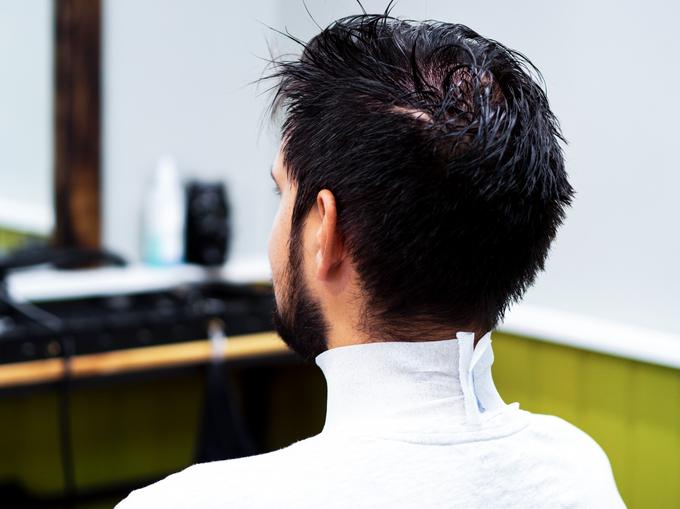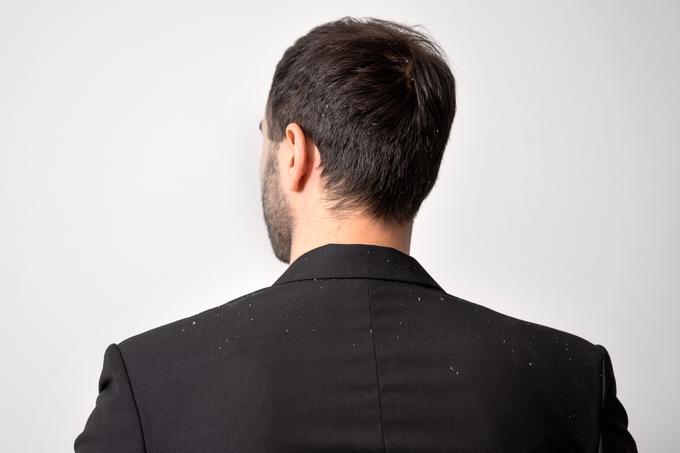What Are the Causes of Hair Loss in the Crown Area?
- Written by Lordhair Team
- Dec 22, 2024
- |
- 6 min read
 Listen to the full text
Listen to the full textLet's talk about something that bothers a lot of guys - that thinning spot right on top of your head. After helping thousands of men address their crown hair loss with men's hair pieces, we've learned that understanding why it happens is just as important as knowing how to fix it.

Understanding Crown Hair Loss
Ever wonder why hair seems to disappear from the crown first? It's like your scalp's got a target painted on it. The crown area is particularly vulnerable to thinning because of how the hair grows there - in a swirling pattern that makes any loss more noticeable. Think of it like a garden where plants grow in a spiral - when some plants die off, the pattern makes the gaps really obvious.
Spotting the Early Signs
You might notice it in photos first - that moment when you see the back of your head and think, "Wait, was that spot always there?"
Early signs include:
- Your part line getting wider
- More scalp showing when your hair's wet
- That swirl pattern looking more sparse
- Hair feeling thinner when you run your hands through it
What's Really Causing Your Crown to Thin?
The Genetics Game
Here's the thing about crown hair loss - a lot of it comes down to your family tree. If you've got relatives with that classic bald spot on top, you might be dealing with androgenetic alopecia. It's all about how sensitive your hair follicles are to DHT, a hormone that can shrink them over time.
Hormone Changes Hitting Your Hair
Your hormones don't just affect your mood - they're major players in hair loss too. Stress hormones like cortisol can throw everything off balance. Even changes in testosterone can impact your crown area first.
Lifestyle Factors That Matter
Sometimes it's the daily stuff that adds up:
- Not getting enough sleep
- Stress overload
- Poor diet choices
- Too much alcohol
- Smoking
When Your Scalp's Acting Up
A healthy scalp equals healthy hair. Issues like dandruff or folliculitis aren't just annoying - they can actually lead to crown thinning if left unchecked.
Taking Action: What Actually Works

Quick Fixes vs Long-Term Solutions
Topical treatments like minoxidil might help slow things down, but let's be real - they're not always enough. Medications like finasteride work for some guys, but they come with their own set of considerations.
Non-Surgical Solutions That Work
This is where modern hair replacement systems come in. At Lordhair, we've developed crown-specific systems that:
- Match your natural hair pattern
- Create undetectable coverage
- Stay secure during activities
- Allow for natural styling
Making Changes That Matter
Beyond treatments, some lifestyle tweaks can make a difference:
- Boosting protein intake
- Getting those essential vitamins
- Managing stress levels
- Improving sleep quality
When to Get Professional Help
Time to See a Doctor?
Consider professional help if you notice:
- Sudden or patchy hair loss
- Scalp irritation or pain
- Hair loss with other symptoms
- Rapid thinning
Treatment Options Worth Considering
Some guys find success with:
- PRP therapy
- Scalp micropigmentation
- Hair transplants
- Custom hair systems
The Questions Everyone Asks
Can crown hair loss be reversed?
Sometimes, depending on the cause. Early intervention is key. While some causes are permanent, solutions like our hair systems provide immediate, natural-looking results.
How long until treatments work?
Medical treatments typically take 6-12 months to show results. Hair systems? You'll see the difference immediately.
What about styling to hide it?
While certain haircuts can help temporarily, they're usually just band-aid solutions. For real coverage that lets you style your hair any way you want, quality hair systems are your best bet.
Taking Control of Crown Hair Loss
Whether you're just noticing thinning or dealing with significant loss, you've got options. At Lordhair, we've helped thousands of men regain their confidence with crown-specific hair replacement systems that look and feel natural.
Remember, crown hair loss might be common, but that doesn't mean you have to live with it. From understanding the causes to choosing the right solution, you're in control of your hair journey.


